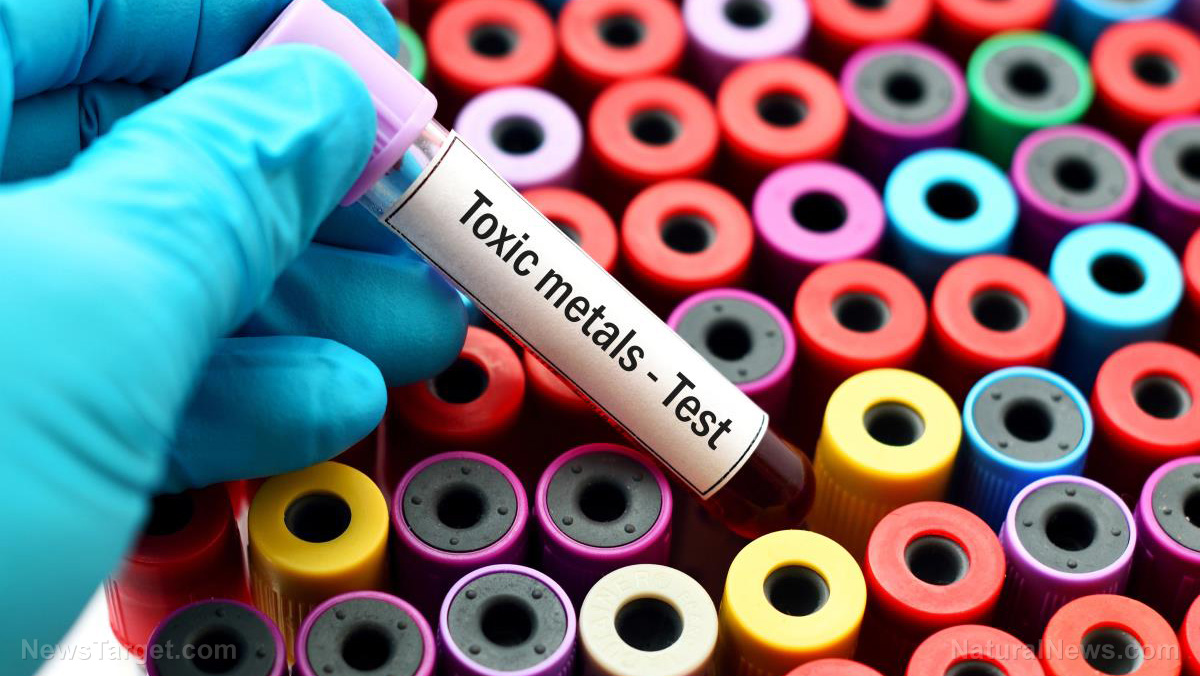From womb to tomb: “Forever chemicals” can be passed on to babies during pregnancy
12/02/2022 / By Belle Carter

An American activist group recently examined studies that investigated the presence of synthetic perfluoroalkyl and polyfluoroalkyl substances (PFAS), also known as “forever chemicals,” in babies’ cord blood. PFAS earned the nickname because they do not degrade in the environment and stay in the body forever.
The latest Environmental Working Group science review indicated that pregnant women may, unfortunately, pass on the chemicals to their babies during pregnancy and their offspring would have to carry the PFAS “from womb to tomb.”
“EWG scientists reviewed 40 studies examining the presence and health effects of PFAS in cord blood. All reported the detection of a wide range of PFAS in the blood. Sixteen studies found associations between PFAS exposure in cord blood and changes in vital body molecules called cord blood lipids, as well as harm to fetal and childhood development,” the analysis stated.
The man-made chemicals infest literally everything, including food and water, which eventually make their way into even babies’ umbilical cords. According to the National Institutes of Health, PFAS are used universally in all kinds of everyday products – even in face masks mandated for children to be allowed to attend school. (Related: Consumer beware: Study reveals toxic “forever chemicals” in pesticides are entering the food supply.)
Exposure to these chemicals is associated with health harms including adverse changes in blood lipid profiles and metabolic diseases like diabetes and obesity. These toxic elements chemicals could not be expelled and the body’s natural detoxification organs, the liver and kidneys, could not filter them out.
PFAS have also been linked to increases in liver enzymes, behavioral and neurological outcomes, cancer, immune suppression, thyroid disorders, kidney disease, cardiovascular diseases and harms to the developmental and reproductive systems.
Meanwhile, cord blood contains cells called hematopoietic stem cells that can turn into any kind of blood cell and can be used for transplants that can cure diseases such as blood disorders, immune deficiencies, metabolic diseases and some kinds of cancers. However, if the cord blood is infiltrated by toxins, transplant recipients may be harmed rather than saved.
Study confirms presence of PFAS in face masks
Earlier in the year, a study published in the American Chemical Society’s Environmental Science & Technology Letters confirmed that “forever chemicals” are present in face masks, albeit in levels generally considered safe. The study offered some “reassurance” for the general public and concluded that most face masks tested were not a major source of PFAS exposure.
“We didn’t really find a real smoking gun,” said study author Graham Peaslee, a professor of physics and biochemistry at the University of Notre Dame. However, Peaslee noted that the facial coverings are worn regularly and then disposed of regularly – leading to more PFAS in the environment and raising exposure levels for the public.
Using mass spectrometry, the researchers tested nine types of face masks for PFAS. Those tested included six reusable cloth masks, along with a surgical mask, an N95 mask and a heat-resistant mask meant for firefighters.
They drew from animal studies to determine health problems based on chronic exposure, the researchers found that most of the masks would not exceed the dose considered safe.
Exposure scientist and environmental epidemiologist Courtney Carignan, who conducted the exposure and risk assessment portion of the study, said PFAS exposures from face masks are small compared to other pathways such as drinking water.
However, she noted exposure and risk appeared higher for children. Wearing masks during extended period of physical activity could also increase the chance of inhalation exposure.
“Several reviewers were concerned that the worst-case scenario I modeled, a toddler wearing a mask all school day, is not realistic,” Carignan said. “However, it’s what my children and many others have been doing for over a year now. Most parents would likely prefer their child’s mask be free of any hazardous substances.”
Visit Chemicals.news for more on the dangers of PFAS.
Watch the video below that talks about how to lower PFAS consumption in the diet.
This video is from the Finding Genius Podcast channel on Brighteon.com.
More related stories:
EPA to designate two “forever chemicals” as hazardous substances.
Study: “Forever chemicals” in popular cooking products increase risk of liver cancer.
Toxic “forever chemicals” are contaminating Florida oysters.
Sources include:
Submit a correction >>
Tagged Under:
children's health, cord blood, environment, face masks, health science, infant's health, perfluoroalkyl, PFAS, poison, polyfluoroalkyl, products, real investigations, research, toxic chemicals, toxic ingredients, toxins, women's health
This article may contain statements that reflect the opinion of the author
RECENT NEWS & ARTICLES
Chemicals.News is a fact-based public education website published by Chemicals News Features, LLC.
All content copyright © 2018 by Chemicals News Features, LLC.
Contact Us with Tips or Corrections
All trademarks, registered trademarks and servicemarks mentioned on this site are the property of their respective owners.



















